#atypical an
Explore tagged Tumblr posts
Text

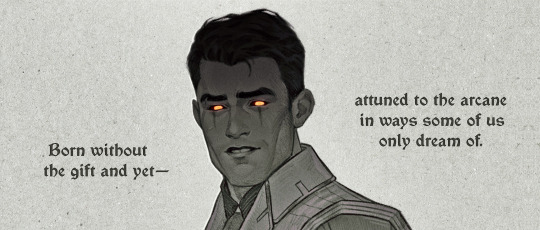
Leblanc!Jayce & Mel
I was going through Arcane frame by frame and found these. Had fun drawing.
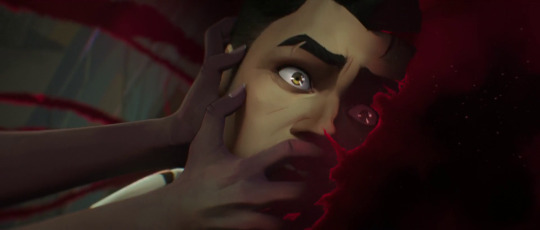
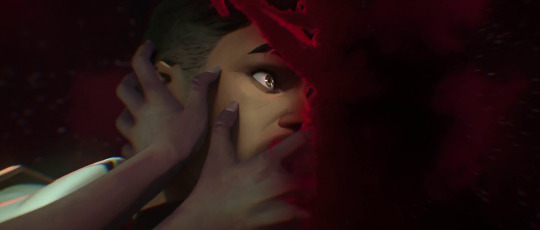
Fun fact (not): Everyone whose form Leblanc was taking are dead.
#leblanc#mel medarda#jayce talis#kind of#meljay#also kind of#they're my atypical ship#neither romantic nor endgame but very much there and fun to explore#also i don't actually know if this is sth leblanc would say but i like to imagine#what do actual mages think of hextech and its fathers?#sth funny to think of: a pair of unhinged scientists dooms your world in ways some mages who were actually trying to do it couldn't#my art#arcane
3K notes
·
View notes
Text
Bad things are on the horizon regarding pornography laws in the US, which will affect every part of the internet that you and I use, and we need to be ready. We should go forward assuming that any art which is sufficiently queer and subversive may be classified as pornography.
Continue to create, share, and support queer and subversive art. Resist all pressure to voluntarily self-censor. Do not obey in advance.
#Feeling very uneasy about sending an atypical newsletter this morning#But it felt necessary!#original post#what manner of man
3K notes
·
View notes
Link
#live#mi ocs#golden globes#instagay#atypical#chloe agnew#lardaspoesias#ling yao#spiritual#girls socks#itswhatever
545 notes
·
View notes
Text

i listen to fog lake too much
#falls through the ceiling with a mighty crash hello#it's been what...8 months?#I was too busy w uni and being mentally ill#thank u everyone so much for the tags on all prev posts.. i re-read them oaccasionally 💗#they make me v happy thank u for giving me a moment of ur time#that means so much#anyway! vashwood!!#i hate them so much#i want to eat them#i want to ugly cry#i want an ideal world where they could've had something for a little bit#im eating drywall and pacing around the room in a cold sweat#so trimax-atypical overt intimacy it is#more coming...in maybe another year#It's a big project!#to me. yeah#my dream is to be put in a terrarium for a while#if only u knew how many wips I have w vashwood..#maybe i'll get tired and pile them into one post all unfinished and no less ok for it yk#whatever u r doing doesn't need to be perfect to make someone happy#didn't u experience a positive little zap from my imperfect colored doodle rn?#what a speedrun of a drawing that was#(<spent 10h on it. that's the minimum for anything ever)#hope today is treating you well! so long stranger!#vashwood#vash the stampede#nicholas d wolfwood#trimax#trigun#tzarrz
3K notes
·
View notes
Text
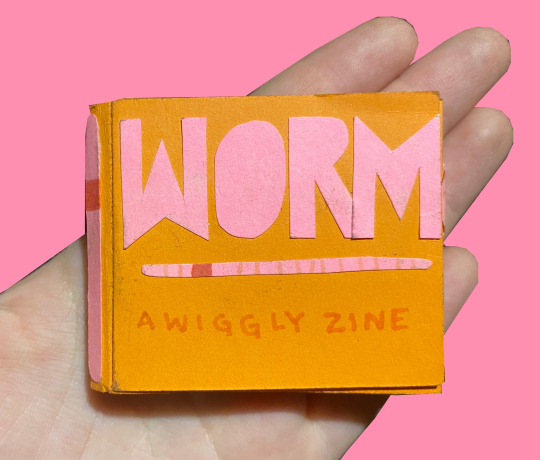
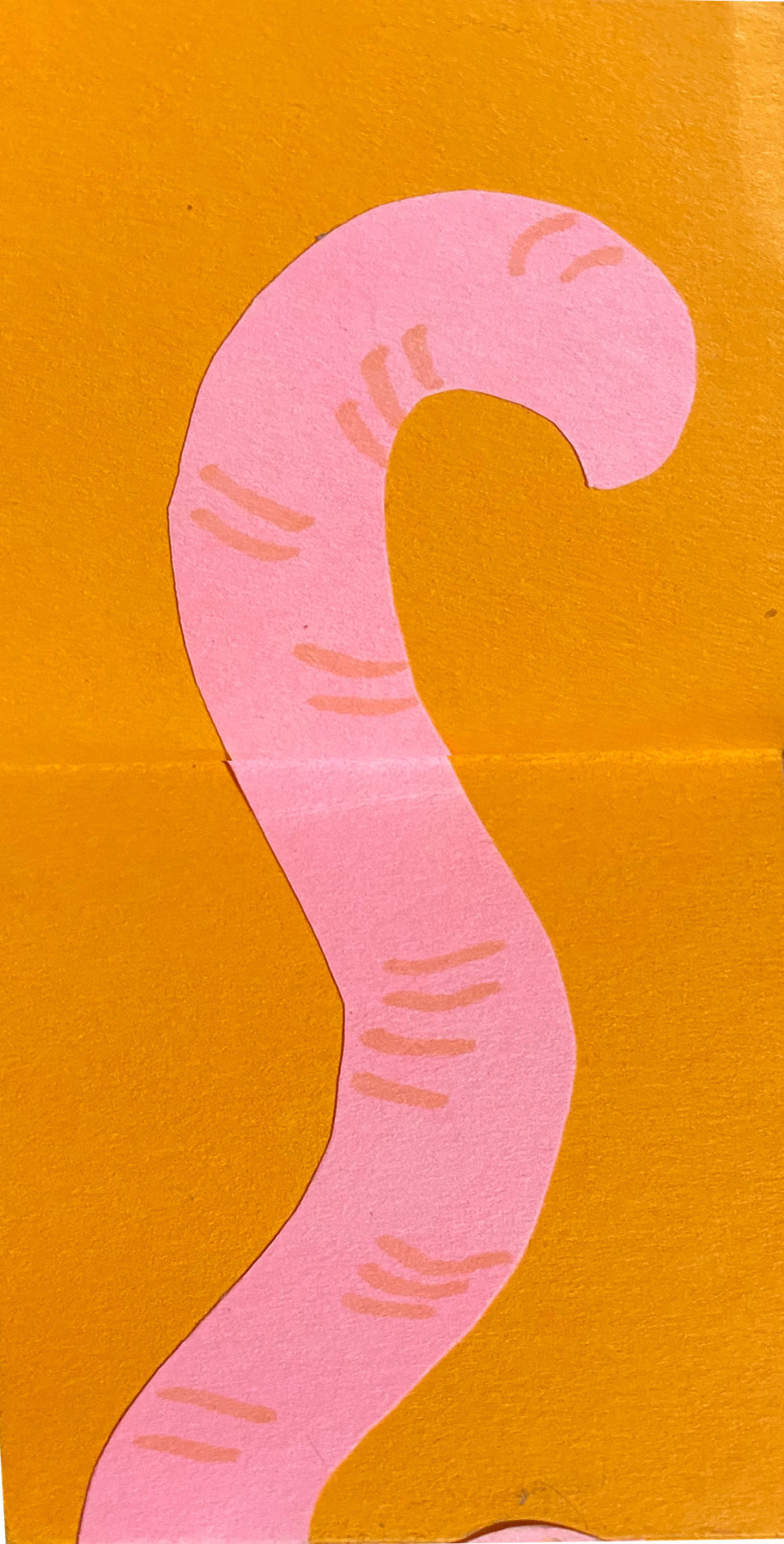
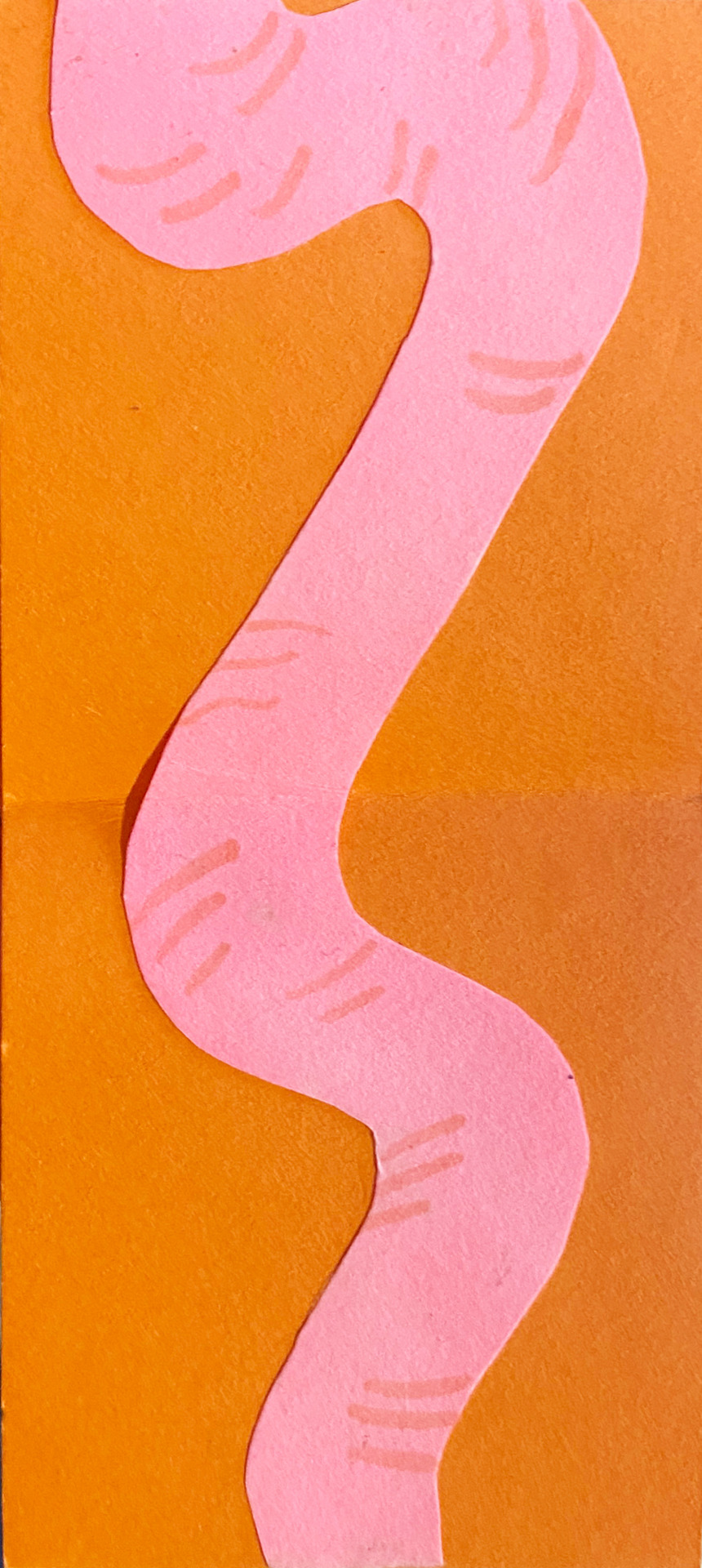





Worm: A Wiggly Zine, 2024
Note: This zine can transition between both bound and unbound. The bound format allows this zine to be read like a book, wish distinctive pages. The unbound format allows for this zine to be read continuously as depicted above.
1K notes
·
View notes
Text

do we get any farmland or is it all blood swamp
#mohg lord of blood#elden ring#scoob scribble#increased chance of him approving ur request if its signed ''love from (name)''#when i was drawin his hand i was like how convenient that i am holding a writing implement at this time#and as such can use my own hand as reference !#BUT THEN !#i remembered i hold it in an atypical manner due to my impractically long nails#BUT THEN ! x2#i remembered mohg also has impractically long nails. crisis averted.
420 notes
·
View notes
Text
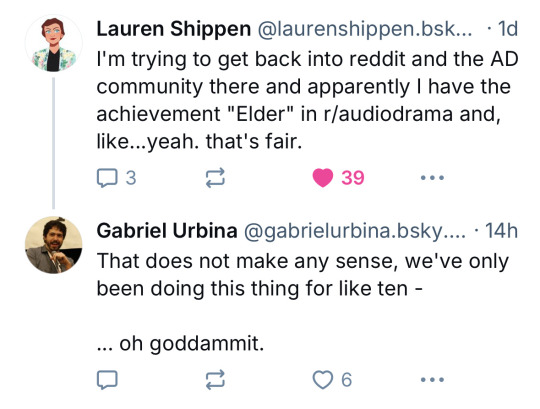
time is fake
#why do these two make me laugh even on bluesky#wolf 359#the bright sessions#long story short productions#atypical artists#audio dramas#fiction podcasts
549 notes
·
View notes
Text
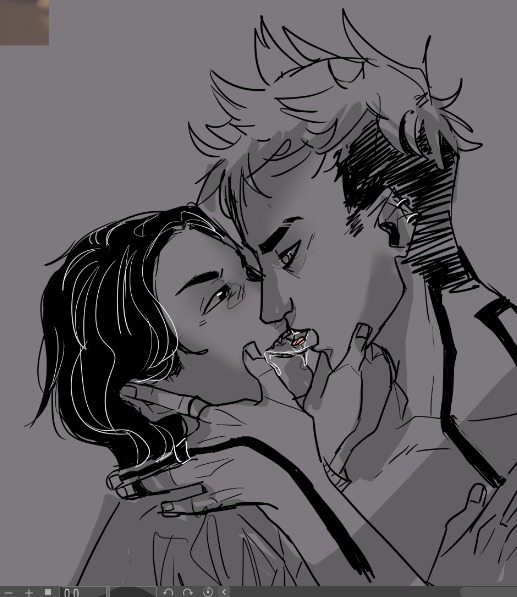
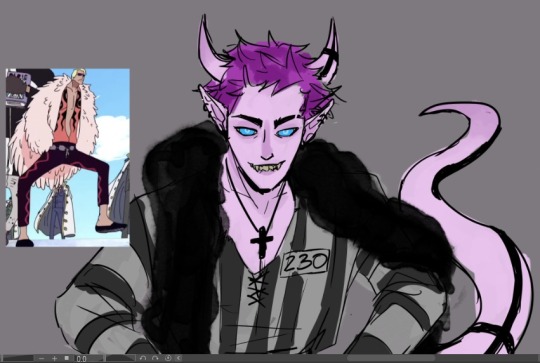
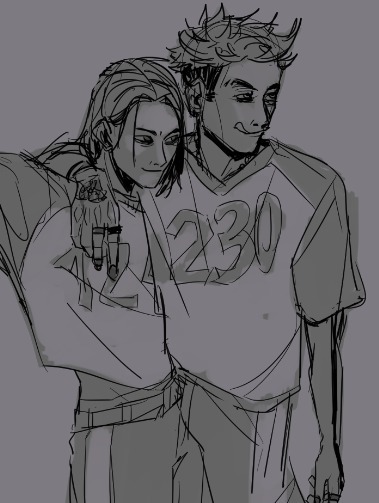
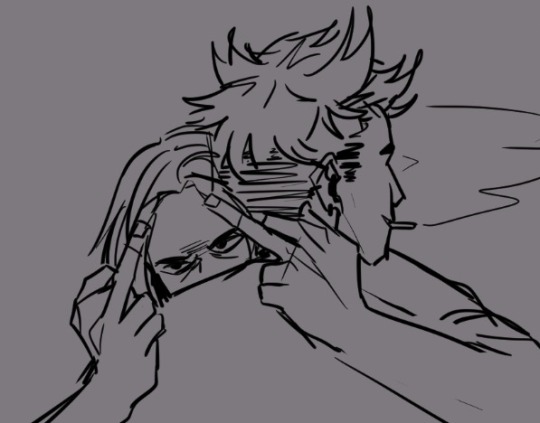
i will not hide my insanity
twt dump
#thangyu#squid games#squid game 2#thanos squid game#nam gyu#i am higly insane about them :)#not very atypical of me i know#theyre disgusting#dnd thanos as a tiefling bard that escaped prison and believes is a gangster bc he raps#dicks touching#spit in mouth with drugs nomnom#fuck themmmmmmm
346 notes
·
View notes
Text
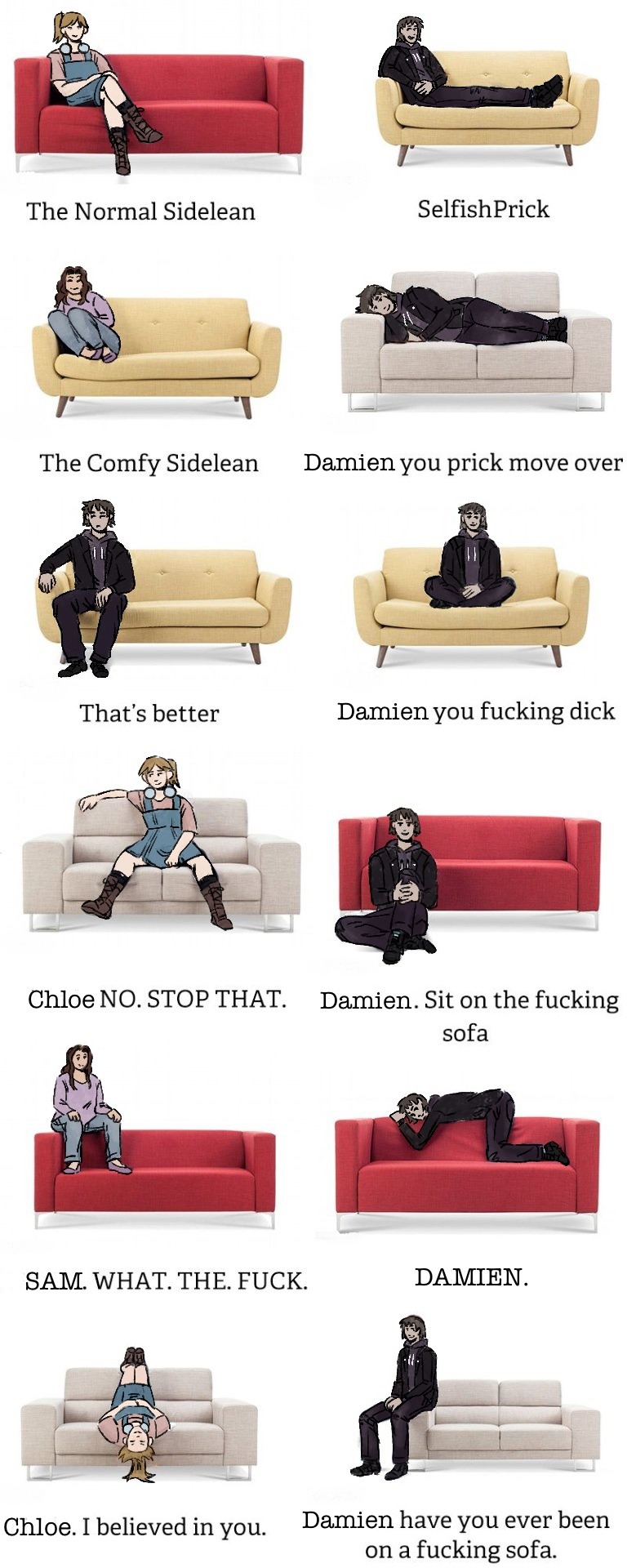
There is no way Damien ever sat on the therapy sofa™ like a normal person.
#artists on tumblr#my art#rose draws#fanart#damien gorham#the bright sessions#tbs#atypical artists#Sam tbs#damien tbs#Samantha Barnes#Chloe tbs#chloe turner#two whole posts in one day#happy livestream day I guess xp
204 notes
·
View notes
Text
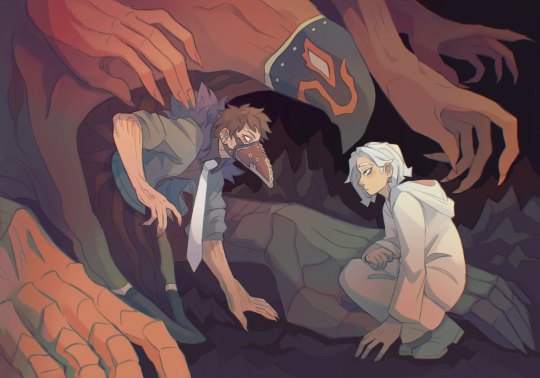
Recognition
#I worked on this for too long and now I can't really be satisfied with it but I can accept the fact that it is 3am and I should sleep#Okay time to ramble about monsterhaul. So obviously its something of an atypical form which means it isn't included in fan content too much#but when it is usually Nemoto's (for lack of a more eloquent term) fusion gets the spotlight which is fair and cool I love it too#However there is definitely something to be explored in the fact that Rikiya represents the violation of abstinence from err. contact#Which makes him interesting to be mushed together with the very literally and symbolically touch-averse character that is Chisaki.#And when placed before Kurono there's appeal in putting two characters normally so laden with inhibitions into a#situation where those are somewhat repealed by existing inherent filth and the dispositions of a third party.#Good concept. Anyways there's also the secondary factor I got caught up thinking about in this piece pertaining to#the escalation of Chisaki's severity in action and Hari's continued support in spite of the other's ever-decreasing resemblance to#the kid he met years ago as Chisaki abandons internal and external standards#In short I'm unwell#Going to ignore this for a while now so I don't scold myself for the anatomy#chronohaul#kurono hari#hari kurono#kai chisaki#chisaki kai#orb draws#mha#bnha#my hero academia
420 notes
·
View notes
Text
Species Dysphoria Flag
[pt: Species Dysphoria Flag /end pt]


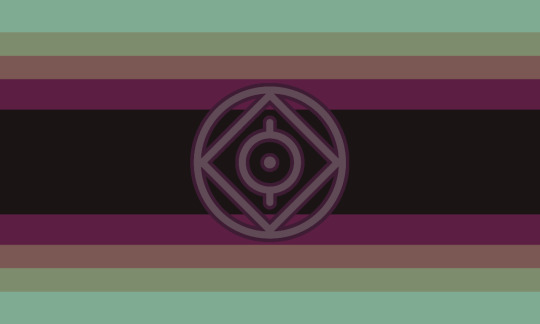

Species Dysphoria - A condition in which a person feels that their body is of the wrong species. Many with this condition believe it is because their body does not reflect their inner identity. As a result of this, the person may feel discomfort or confusion.
(No spoons for ID, sorry!)
Self indulgent coining
Tags - @radiomogai @kin-flags @mad-pride @accessibilitea
If anyone would like to be tagged in this post or future coining/flag posts please let us know <3
#visceral coins#species dysphoria#atypical dysphoria#dysphoria#nonhuman term#nonhuman flag#alterhuman term#alterhuman flag#otherkin term#otherkin flag#therian term#therian flag#liom blog#liom community#mogai blog#mogai#qai community#liomogai#coining#mogai coining#liom#liom coining#liomoqai community#mogai flag#liom term#liom safe#peaches coins#mogai term#mogai community#qai coining
243 notes
·
View notes
Text

VERINCARNATE. ➷
pt: verincarnate. end pt.



DEFINITION ⠀✦⠀ when one's true form is different from the body they're currently in, or their true form is that of the body they're in but is for some reason invisible to others.
pt: definition, when one's true form is different from the body they're currently in, or their true form is that of the body they're in but is for some reason invisible to others. end pt.
TAGS. @radiomogai @alterhumanflags @sevvys @angeltism @zoeynovie @boingogender @pupcoins @monarchenwinter @the-astropaws @flutteringwings-coining @acronym-chaos @whimes. ➷


#︵︵﹒ @rwuffles | ⚣#︵︵﹒ coining | ⚣#mogai#liom#liomogai#mogai safe#liom safe#pro mogai#pro liom#mogai friendly#liom friendly#mogai community#liom community#mogai coining#liom coining#mogai flag#liom flag#mogai term#liom term#microlabels#microlabel#microlabel coining#microlabel flag#alterhuman#alterhuman term#alterhuman coining#alterhuman label#verincarnate#atypical dysphoria
335 notes
·
View notes
Text
Some genuinely good kdramas this year. I have so many left to watch but amongst the ones I did finish here's a review no one asked for.
MARRY MY HUSBAND.....great acting good pacing the thriller aspect done right and a cute ending
DOCTOR SLUMP.......love love lived it. It was funny and heartwarming and the thriller part didn't annoy me. Cutest grownups. A warm cozy drama for your lonely days.
LOVELY RUNNER.....10/10. They really ate with the storyline and the actors and everything. Had me waiting for the episodes and in a hangover for a month.
QUEEN OF TEARS......had me frustrated as hell. But I did enjoy it till the end. A rare drama where the ending is really far better than the whole of the drama. The actors saved this wreck of a story honestly.
THE JUDGE FROM HELL.....10/10. Loved everything. Psh as the demon judge perfect. Kjy as Han Da On perfect. Them serving enemies to lovers perfect. Her killing those ruthless criminals perfect. Would love a sequel and spinoffs whenever they decide to do it.
BREWING LOVE.....cute cute cute. Shipped the mls so hard actually. The cutest one of this year for me.
KNIGHT FLOWER.....discovered ljw here actually. And a genuinely underrated drama. It's funny actually is deep and has a satisfying narrative. Would love a sequel here too.
MR. PLANKTON.......you will laugh so hard and then you'll cry so hard. A lovely drama but I ain't watching it again.
Romance in the house.....have a couple episodes left but this is a good one too. Middle aged romance plus young love. Fun stuff overall.
Atypical Family....super interesting and dope actors. Leaves you sorta hanging but hopeful.
Miss Night and Day......Really really loved the three main leads. And it had a fascinating premise. Fun one.
And WHEN THE PHONE RINGS....Topping the drama lists this late comer. But we'll be ending this in the next year. So more about this next year.
#kdramas#kdramas of 2024 that I managed to watch#marry my husband#doctor slump#lovely runner#queen of tears#the judge from hell#brewing love#knight flower#mr plankton#miss night and day#atypical family#romance in the house#when the phone rings#there were some really good ones this year that I've still left#hoping to watch them maybe soon
303 notes
·
View notes
Text

nichelink: a newly coined niche relationship/relationship dynamic that differs from social norms, but is consensual and aware of potential risks.
differ from the norm: this is flexible and vague on purpose. see the ‘examples’ section.
probably niche: niche, probably not many people will identify as this, it’s just now been invented and posted on tumblr dot com, but it’s still a valid want and identity label.
aware of potential risks: this is inspired by the kink phrase Risk-aware consensual kink or risk-accepted consensual kink (RACK), and it means that everyone in the relationship is silently nodding and acknowledging there might be risks. you don’t have to prove yourself to others on this, don’t feel expected to tell everyone your personal business on how you’re managing this risk, because it’s not their relationship���
consensual: this is inspired by the kink phrase Consensual non-consent. basically it means that everyone in the relationship agreed to have the relationship play out a certain way, and the relationship may play out (maybe in a sort of roleplay-like fashion) like it’s non consensual, but everyone in the relationship is both expecting this to happen and still has the ultimate say on if things need to 100% stop or if it’s time for them to leave the relationship.
newly coined: i want to make it clear that existing relationship dynamics shouldn’t be shoved into this label because that feels disrespectful to those existing words, so essentially this means that existing words for it didn’t 100% describe this dynamic, so you can’t just say xyz thing is actually this term. (however, if you find one of these describes something you've already been doing for years, it's perfectly fine to start identifying with this of course.)
examples:
relationship where one person is treated as if they are an object owned by the other/s in the relationship
relationship where one person is treated as if they are a deity, and the other/s in the relationship are their followers
relationship where one person is treated as if they are a pet owned by the other/s in the relationship
relationship where one person is treated as if they are a child adopted by the other/s in the relationship
relationship where one person is transforming the other/s in the relationship into something
labels under this umbrella have a Ratings System.
All-Ages: a label that is suitable for all ages.
16+: a label that would be best if it was only used by people 16 years or older (bodily). this doesn’t mean that it’s NSFW or something, but should be used when the term has something pretty intense or serious about it which probably shouldn’t be practiced with younger people. all terms under this umbrella that involve identity modification or training are inherently 16+.
18+: a label that is inherently not suitable for people under 18 years (bodily).
grammar:
nichelinking: the state of being in this kind of relationship with someone else. “we’re nichelinking,” “we might start nichelinking”
nichelink: 1) the specific terms themself. “i coined a nichelink,” “definition: an all-ages nichelink where you…” 2) the relationship itself. “our nichelink,” “his last nichelink”
nichelinker: someone who participates in nichelinking.
there is currently no word for having a nichelink-related crush on someone, suggestions welcome.
inspirations
neurowiry
relationship anarchy
roleplay
found family tropes
desirdae
dissomei
my own personal experience of becoming someone’s “dad” - i made a friend in high school who i came out as transgender too, and then as a joke based on how people in the undertale fandom called toriel “mom,” we began referring to me as my friend’s “dad.” this joke stuck and then started genuinely being a serious part of our friendship. reflecting on this made me realize that there’s actually lots of relationships in life that’re similar, where you refer to each other as something unusual and it feels like it changes the entire status of your friendship. i liked the idea of making a word someone can use for this kind of friendship/relationship if they wanted.
i did a lot of writing about what this term means and can be used for and it ended up being long so you can read it on this page. (updated 1/10) here are some of the faq questions (but not all, so please read that page):
is this a k*nk thing?
no, it’s not intended to be. there are plenty of nichelink terms usable by anyone at any age. however if you’re an adult and you find a term appealing and start to use it because of k*nk things, more power to you, go right ahead.
is this anti r*dqueer?
i don’t find it makes sense to say that something that isn’t a stance term/blankqueer term is anti this or pro that. but this term was inspired by r*dqueer “consensual abuse” relationships, and i did start working on this because i saw that there were a lot of people who craved a specific relationship dynamic or way of being treated who felt like they couldn’t get that outside of the r*dqueer community, so i wanted to make a risk-aware and safer alternative that is not attached to a harmful community known for abuse, transphobia, racism, etc.
if you crave being treated a certain way, yes even in a “harmed” way, this term is welcome to you.
can i coin my own?
not yet. i’m still working out the kinks (🥁✨) on definitions and guidelines. i also have a big list of terms i’d like to coin for it. you can send me a request at least.
can i post this term on…
wiki/term definition sites: yes, and you don't have to ask, but i would like to be informed.
pinterest/other social medias: no, never, i'm not comfortable with someone else posting my term for me. go ahead.
tags: @antiradqueerguy | @radiomogai | @the-silent-fellowship | @harmlesspersonalidentityarchive | @beyond-mogai-pride-flags | @desirdae-archive | @dissodic-archive | @kiruliom | @anti-rq-gumi | @antiradqueerguy | @neopronouns // ask to be untagged
general flag for all All-Ages nichelinks:

general flag for all 16+ rated nichelinks:

#qai#liom#liomogai#liom term#liom safe#liom coining#mogai coining#atypical dysphoria#plural term#desirdae#alteraffectis#alterous attraction#anti radshit#anti radqueer#relationships#identity#nichelinks#my flags.#my coinings.#recovering radqueer#ex radqueer
253 notes
·
View notes
Text
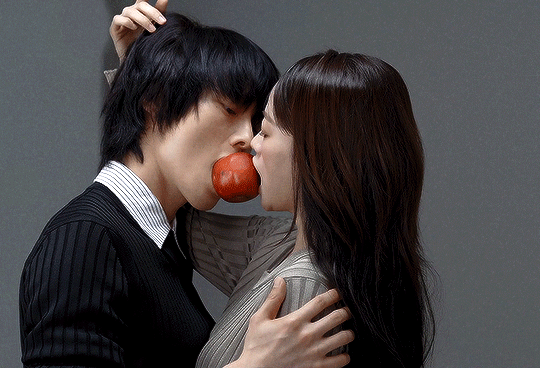

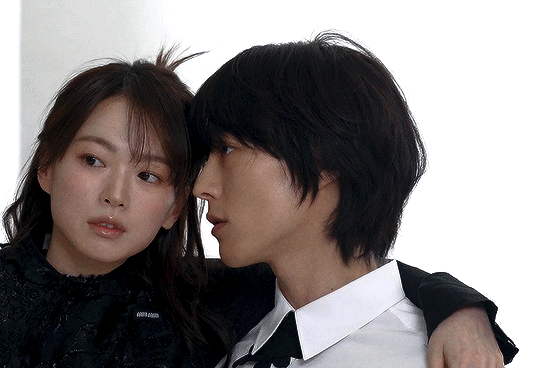

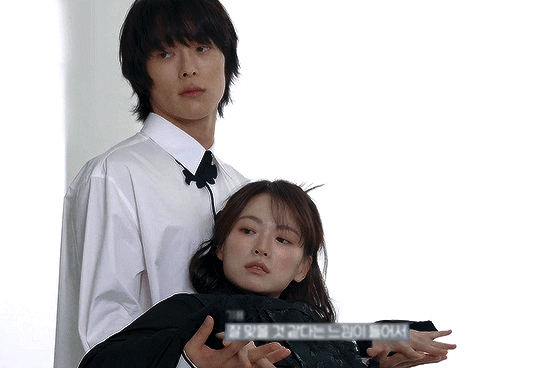
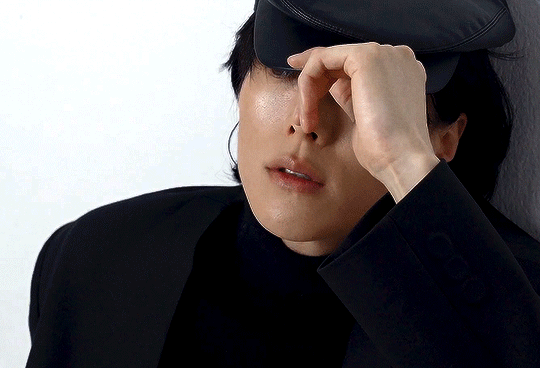

Behind the Scenes of JANG KI YONG & CHUN WOO HEE for ELLE Korea, May 2024
#jang ki yong#chun woo hee#the atypical family#kdrama#kdramaedit#glamoroussource#pocedit#fruitblr#kdramanetwork#kdramadaily#userbbelcher#userdramas#asiandramanet#chewieblog#tvactorsdaily#pocsource#asiancentral#dailyasiandramas#cinematv#*m#*ph#i love when pretty people do things together
720 notes
·
View notes
Text
The Bright Sessions: Consolidated Lore and Timeline
After a month, countless relistens of the podcast, at least a cumulative 5 readings of The Infinite Noise, 3 readings of A Neon Darkness, and 3 readings of Some Faraway Place, my best friend and I have created this monstrosity of a google document that compiles the entire timeline of the entire bright sessions universe.
This 26k-word document contains every major event that happens in the bright sessions, the bright sides, the am archives, the college tapes, and all three books in order of when they happened, along with some extra details about the characters that we wanted to throw in there. There are also footnotes adding relevant details and commentary. This is designed mostly as an outlet for our current hyperfixation, but we thought we'd release it on tumblr so that anyone who might find it useful for whatever reason can access it.
Full credit goes to @thelaurenshippen and @thebrightsessions for creation of this world, and we strongly recommend everyone go out and buy merch, support the producers with monthly donations, or recommend the show to a friend so that Atypical Artists can keep making shows that inspire people like us. Thank you :)
#the bright sessions#a neon darkness#the college tapes#tbs#the am archives#the infinite noise#some faraway place#lauren shippen#atypical artists#the bright sides#tama#tct#cienna talks
223 notes
·
View notes